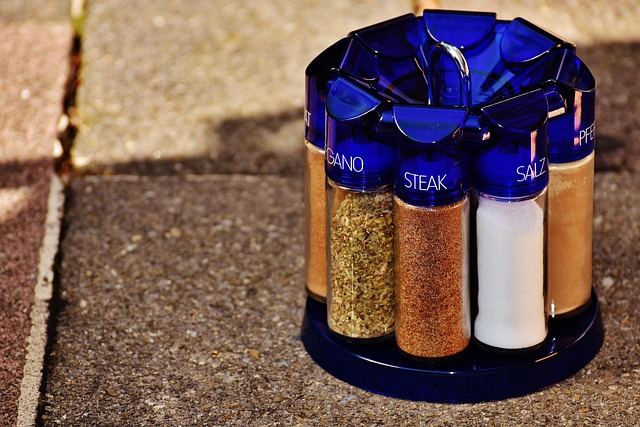Redesigning your kitchen with eco-friendly materials like bamboo, recycled glass, and reclaimed wood is both sustainable and aesthetically pleasing. These options reduce environmental impact, offer unique looks, and support a circular economy. Incorporating natural materials for countertops, cabinets, appliances, and fixtures enhances connection to nature while improving air quality by reducing VOCs. To achieve an eco-friendly kitchen, source materials from specialized retailers and explore online platforms for green products. Engage with online communities for recommendations on local and international suppliers to ensure competitive pricing and high quality.
Looking to transform your kitchen into an eco-friendly oasis? This comprehensive guide offers professional insights on sustainable kitchen updates. From choosing eco-conscious materials like recycled and natural alternatives, to selecting energy-efficient appliances that slash costs and reduce your carbon footprint, we’ve got you covered. Learn waste reduction strategies, discover green design layouts, and explore creative ways to make every aspect of your kitchen both beautiful and planet-friendly. Discover the latest in eco-friendly kitchen ideas – it’s easier than you think!
- Choosing Eco-Friendly Materials for Your Kitchen Redesign
- – Exploring sustainable alternatives to traditional kitchen materials
- – Benefits of using recycled and natural materials in your space
- – Where to find and source eco-conscious materials
Choosing Eco-Friendly Materials for Your Kitchen Redesign
When redesigning your kitchen, opt for eco-friendly materials to create a space that’s both beautiful and sustainable. Materials like bamboo, recycled glass, and reclaimed wood are excellent choices as they reduce environmental impact while offering unique aesthetics. Bamboo, for instance, is a fast-growing resource that provides a modern look without the need for extensive deforestation.
Recycled glass tiles add a touch of rustic charm and help divert waste from landfills. Reclaimed wood not only reduces demand for new lumber but also brings character to your space with its natural imperfections. These choices align with eco-friendly kitchen ideas, ensuring your remodel contributes positively to the environment without compromising on style.
– Exploring sustainable alternatives to traditional kitchen materials
When considering kitchen updates, exploring sustainable alternatives to traditional materials is a fantastic way to incorporate eco-friendly kitchen ideas while enhancing your space. One of the most popular options is opting for solid wood over laminates or vinyl. Natural wood not only adds warmth and charm but also has the potential to be recycled or repurposed at the end of its life cycle, reducing waste. Additionally, choose appliances with Energy Star ratings to significantly lower energy consumption and reduce your carbon footprint.
Other sustainable kitchen materials include bamboo, which is incredibly durable and grows quickly, making it a renewable resource. Recycled glass and stainless steel are also excellent choices for countertops and backsplashes, offering both style and sustainability. These eco-friendly options not only contribute to a healthier planet but can also elevate the overall aesthetics of your kitchen, creating a space that’s both functional and harmonious with nature.
– Benefits of using recycled and natural materials in your space
Incorporating recycled and natural materials into your kitchen design offers a plethora of advantages, aligning perfectly with the growing trend of eco-friendly kitchen ideas. These materials not only contribute to a more sustainable and environmentally conscious space but also add unique aesthetic appeal. By choosing reclaimed wood for countertops or cabinets, you’re not only reducing waste but creating a one-of-a-kind feature that tells a story. Recycled metal, glass, and stone can also be transformed into stunning appliances, fixtures, and backsplashes, providing both functionality and a sense of connection to nature.
Beyond aesthetics, natural materials have proven health benefits. They often have fewer volatile organic compounds (VOCs), which can be found in many synthetic products and are known to cause respiratory issues. Opting for sustainable options can create a healthier living environment, especially considering the time spent preparing meals and entertaining in your kitchen. This choice supports a circular economy, reduces carbon footprints, and encourages a more mindful approach to home renovation.
– Where to find and source eco-conscious materials
When it comes to updating your kitchen with a focus on sustainability, sourcing eco-conscious materials is a fantastic place to start. One of the best ways to find these options is through specialized retailers and brands dedicated to promoting green living. Look for stores that offer a wide range of sustainable products, from flooring and countertops to cabinets and appliances. Many such retailers have online platforms, making it easy to explore eco-friendly kitchen ideas while comparing prices and features.
Additionally, consider joining or checking out online communities and forums where individuals share their experiences with sustainable home renovations. These spaces can be a goldmine for recommendations on where to source materials locally or internationally. You might discover unique suppliers who offer not only high-quality, eco-friendly options but also competitive pricing. This approach allows you to make informed decisions, ensuring your kitchen updates align perfectly with your desire for an environmentally conscious space.
When it comes to updating your kitchen, opting for eco-friendly materials is a thoughtful choice that benefits both the environment and your space. By choosing sustainable alternatives, you contribute to reducing waste and supporting responsible practices. With the right guidance, incorporating green elements into your kitchen redesign is accessible and stylish. Embrace the trend of eco-conscious living and create a vibrant, functional, and planet-friendly culinary hub with these simple steps and creative ideas for an eco-friendly kitchen.
